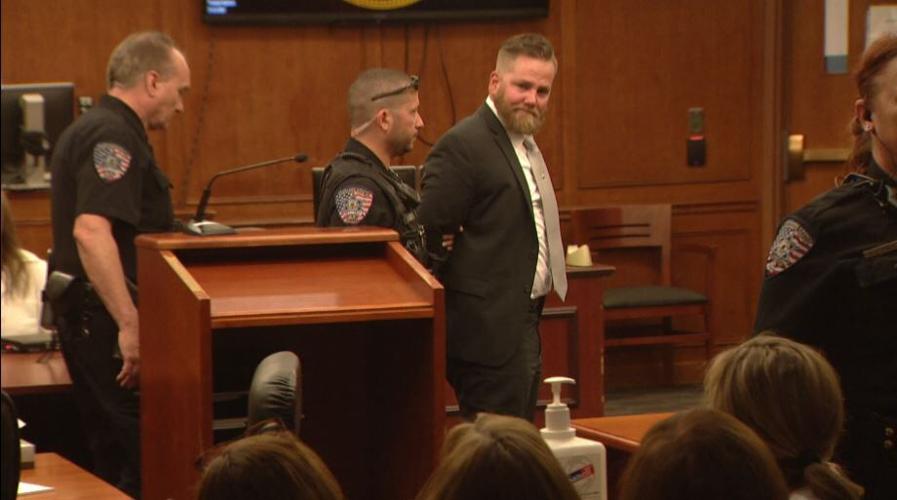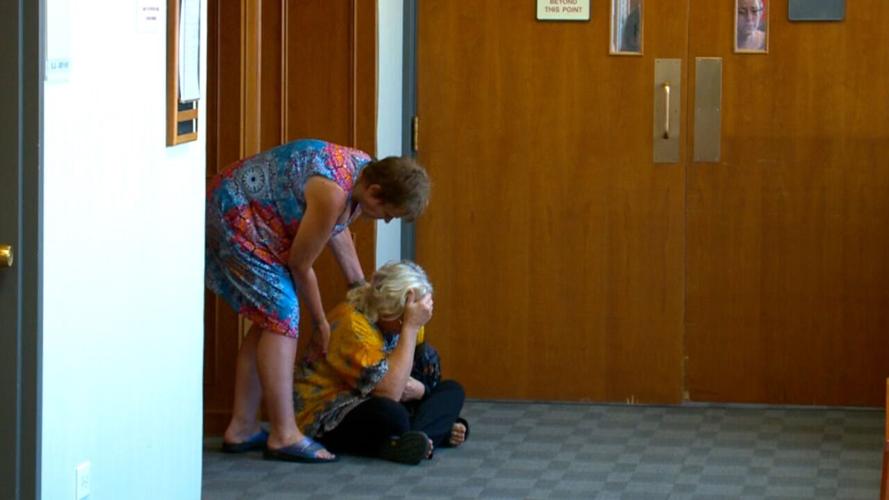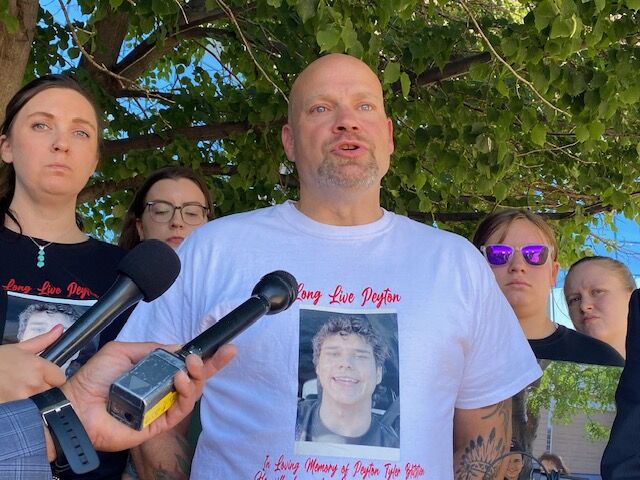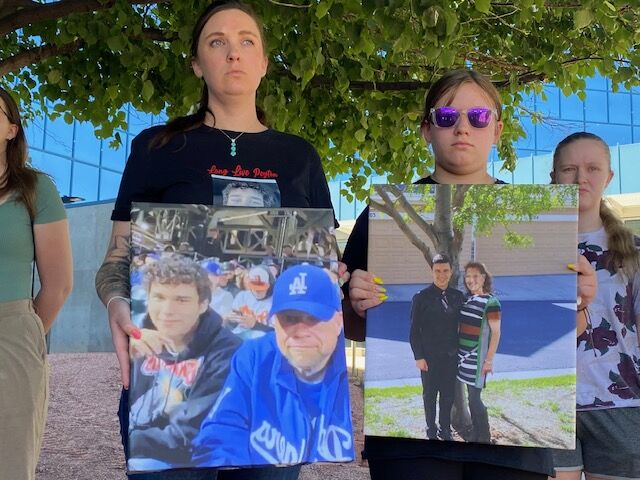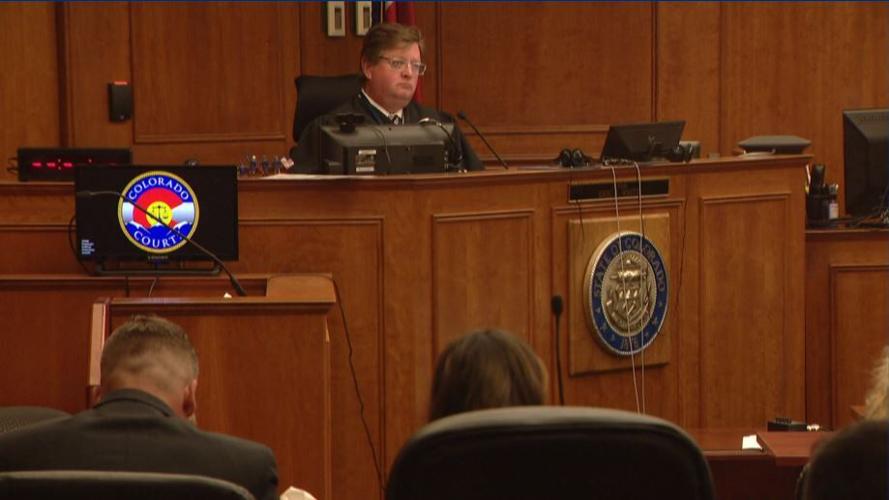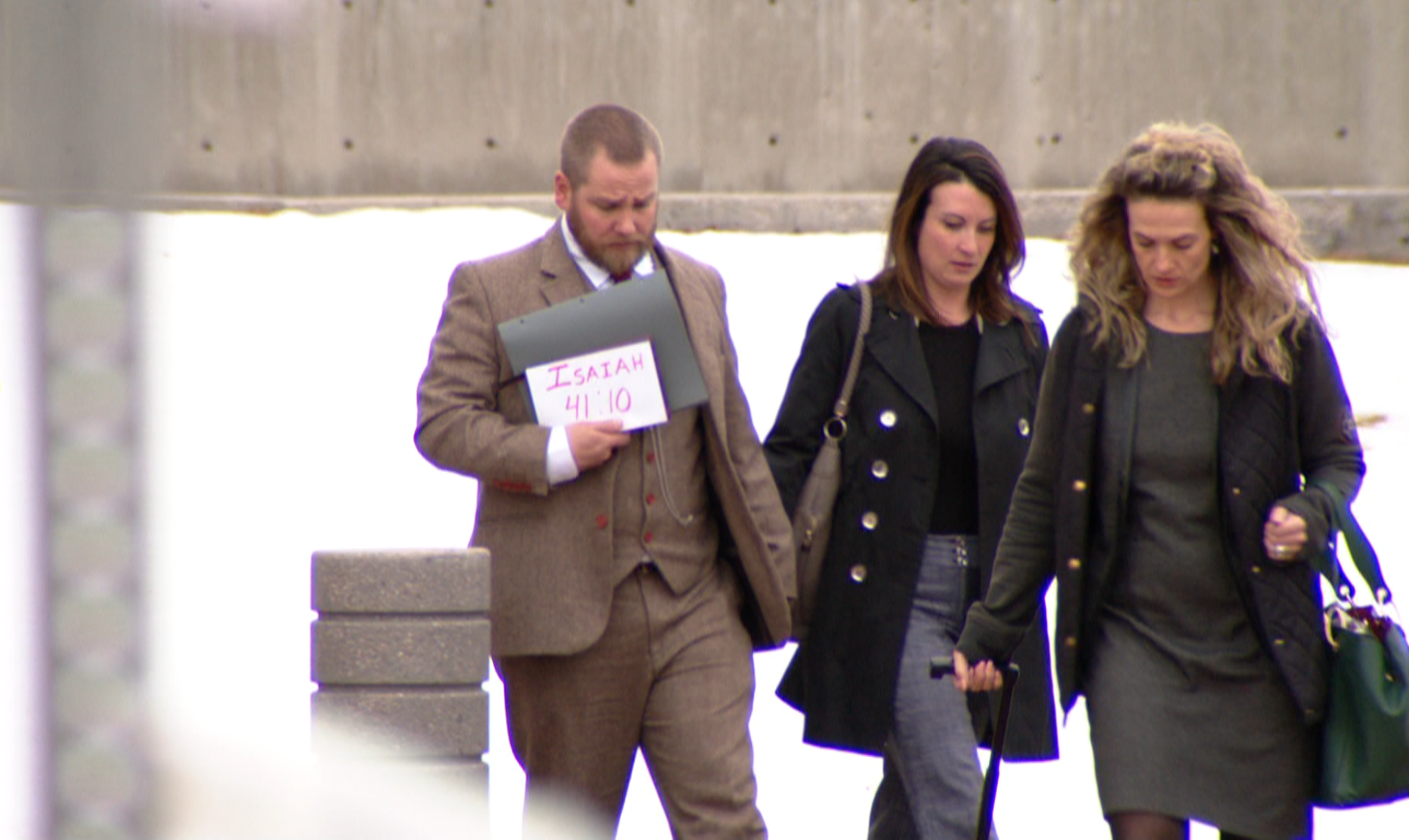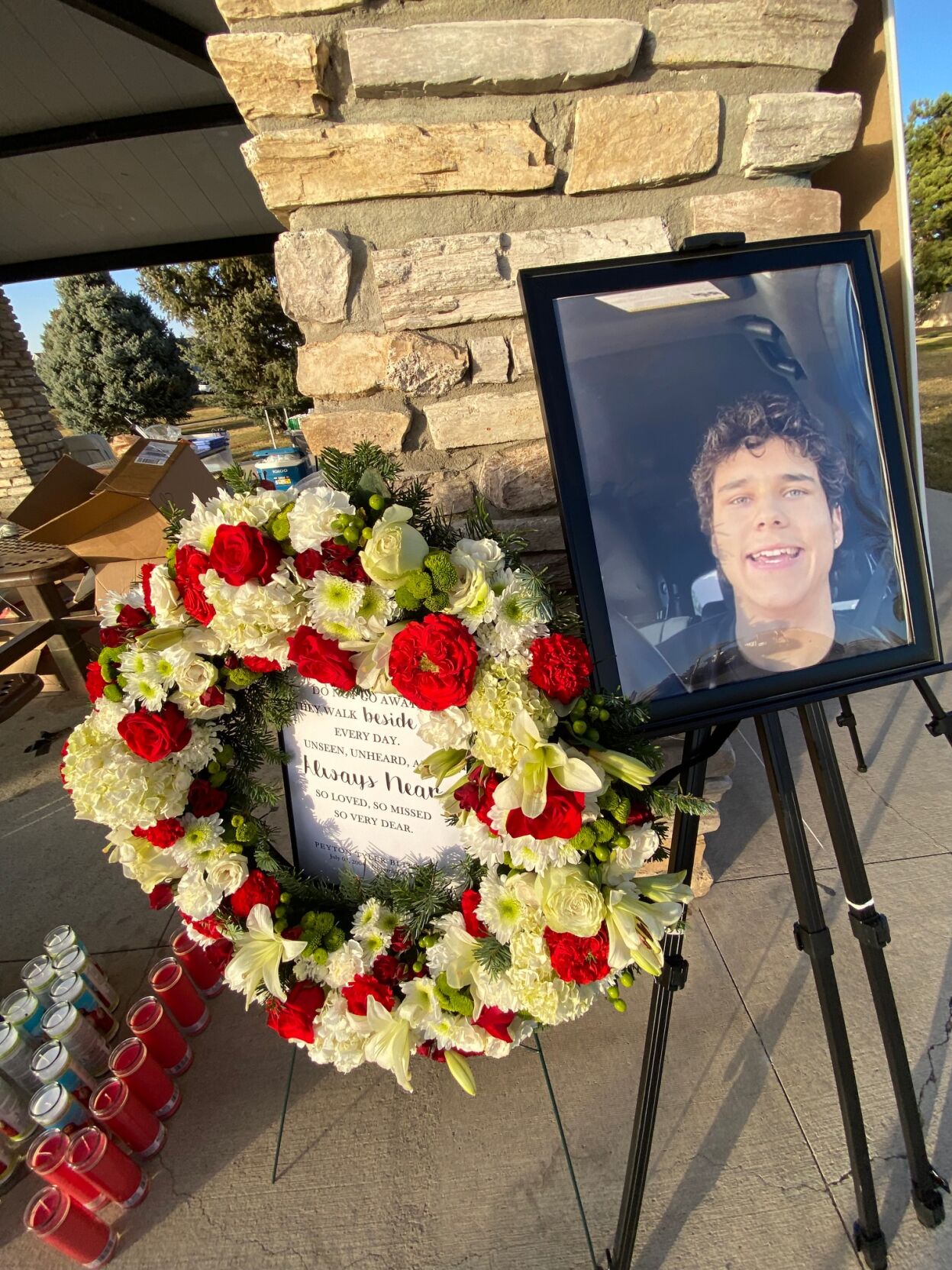Former Greenwood Village cop sentenced to two years prison for teen’s shooting death
A former Greenwood Village police officer was led away in handcuffs on Thursday to serve two years in prison and a mandatory three years parole for what a prosecutor called “a gun battle in suburbia.”
In handing down the sentence, 18th Judicial District Judge Eric White chastised both defendant Adam Holen and his teenaged victim, Peyton Blitstein, for making poor decisions.
“I’m left here with a sentence as urged by Peyton’s family members that involves punishment. That’s what this comes down to,” he said, remarking that the fact that Holen had no criminal record and had behaved well while out on bond factored in his decision.
Blitstein’s family called the sentence “pathetic.”
Blitstein’s father, Todd, lowered his head and gathered himself as the news sunk in. One woman, a supporter of Holen, collapsed in the courtroom doorway, sobbing.
What started out as a road rage on the eve of Thanksgiving in 2021 on a residential street ended in the killing of the 17-year-old Aurora resident. Blitstein would have turned 20 last week had he lived.
His friends and family begged White to give Holen the maximum sentence of six years.
An Arapahoe County jury in February convicted Holen of reckless manslaughter, but found him not-guilty of menacing. He faced two to six years in prison, with the possibility of community service or probation.
Holen has been out on bail since being charged two-and-a-half years ago. He walked into the courtroom on Thursday holding a handmade sign on which was clearly written “Psalm 40,” which states: “I waited patiently for the Lord; and he inclined unto me, and heard my cry.”
It’s been a habit of his to come up with a Biblical passage for each hearing — as he did during the February trial — showing it to reporters as his only statement.
A ‘psychopath and a stalker’ or future youth pastor
In his victim impact statement, Blitstein’s father, Todd, called Holen a “psychopath and a stalker” who came around his truck toward Blitstein and a friend in “low and ready position with the intention to engage in gun violence all the while being drunk and high behind the wheel.”
Holen’s blood alcohol content, recorded at 0.193 by hospital staff hours after the confrontation according to the arrest affidavit, was not allowed as evidence during trial. That level is more than twice the legal limit of 0.08 before being considered too drunk to drive.
In her statement before Judge White, defense attorney Megan Downing claimed that the BAC evidence was not reliable.
Holen, dressed in a grey suit and starched white shirt with a Bible in his hand, apologized to Blitstein’s family.
“I want to express how deeply sorry I am for the loss of his life. It breaks my heart that they have to live with this,” he said.
Holen said he believed his life was in danger, and so he had to act quickly that night. He said he should have stopped to communicate with the teenaged driver of the car in which Blitstein was a passenger, or with her mom.
“Forgiveness is hard and sometimes feels impossible,” he said through tears.
Holen’s wife, Casey, told the judge that prison was not the answer for a man whom she said wanted “nothing more than to become a youth pastor. “
Downing said that her team assessed doorbell video, which documented the killing, multiple times to make sense of a complex case. She said it was not a murder, but an act of self defense.
“There’s a pretty great dispute in this case about who was threatening who,” she said.
Holen’s freedom as he awaited trial and sentencing did not sat well with Blitstein’s family.
“He has yet to see the inside of a jail cell. He’s been granted privileges to leave the state, live life at home and celebrate holidays,” said his stepmother, Cayla Blitstein. “He (Holen) claims he stopped the car as a means to protect children in his neighborhood. It turns out he was the one who was the main threat in his neighborhood.”
Packed courtroom
Before the hearing, Judge White warned the emotionally-charged courtroom “if you feel you are on the verge of an outburst, please have respect.”
It was packed on Thursday, with Blitstein’s and Holen’s friends and family.
In the front row, on the right side, the teen’s relatives wore T-shirts decorated with his likeness. On the left, Holen’s family and friends listened to the grief-filled victim impact statements.
There were so many people on Holen’s side of the courtroom that a dozen them had to stand in the aisle. They ignored offers to sit in open seats on where Blitstein’s family and friends watched, some choosing to sit on the floor instead.
Holen was described as a Christian who loved coaching little league baseball.
“The Adam that I witnessed was not the Adam that I saw,” said former Greenwood Village judge and attorney Elizabeth Schifrin, who remembered him as an compassionate officer who at times bought food for the homeless.
According to arrest documents, the altercation began over what Holen described as reckless driving. He told police that a Toyota Scion full of teenagers was speeding. A neighbor’s doorbell camera caught the incident from the beginning to when paramedics showed up in an effort to save Blitstein’s life.
Holen told police that he was acting in self-defense. The autopsy showed that Blitstein was shot nine times in the torso and arm. Holen was shot once in the hip and released from a hospital the following morning.
The affidavit also said Blitstein fired first before his semi-automatic handgun jammed. The weapon was a “ghost gun” — a firearm that generally is bought online and assembled at home. Ghost guns are untraceable because they have no serial numbers.
Holen gave an interview with Aurora police two days after the incident, waiving his Miranda rights, according to the arrest affidavit.
He told investigators that he heard a “pow,” saw a muzzle flash and returned fire. Asked why he shot so many rounds that night, he said that he was trained to “eliminate the threat,” the affidavit reported.
Blitstein was especially close to his paternal grandmother, Linda Blitstein, who died after a series of heart attacks just hours before the jury announced its decision to convict Holen.
Holen, a former teacher, father of three and youth baseball coach, had retired from the Greenwood Village police force just weeks before the murder.
Blitstein, whose dream was to become a Navy Seal fighter pilot, spent many weekends training at Aurora’s Buckley Air Force Base and at bases out of state.
“Justice is a young man growing up into adulthood,” said 18th Judicial Chief Deputy District Attorney Chris Gallo. “Justice left the station that night.”
Blitstein filed a civil lawsuit against Holen in July of 2023, seeking unspecified damages for Peyton’s death. A status conference in that case is set for Sept. 13





